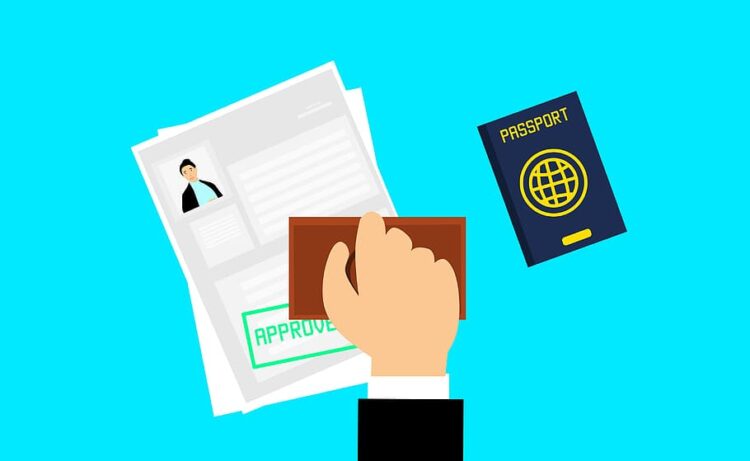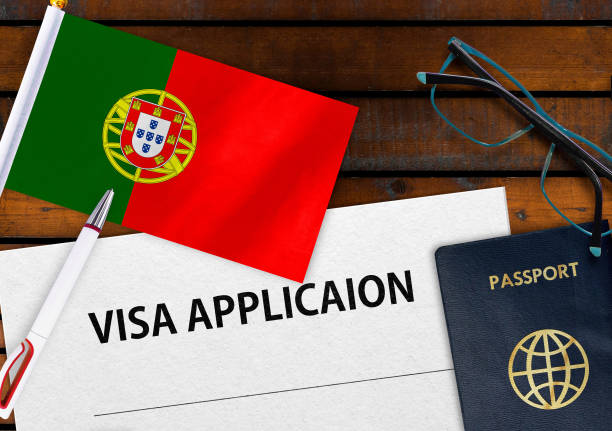Portugal is a wonderful country located in Europe, famous for its rich culture, beautiful landscapes, and friendly people. Many international students are choosing to study in Portugal because it offers high-quality education and a unique cultural experience. However, to study in Portugal, you need to apply for a student visa. This guide will explain everything you need to know about obtaining a study visa, the types available, eligibility requirements, and the application process.
Why Choose Portugal for Your Studies?
1. High-Quality Education
Portugal is home to some of the best universities in Europe. These institutions provide a wide range of courses and programs in various fields such as science, technology, arts, and business. Many universities offer programs in English, making it easier for international students to enroll and succeed in their studies.
2. Cultural Experience
Studying in Portugal allows students to immerse themselves in a rich cultural environment. You can explore historic cities like Lisbon and Porto, enjoy traditional Portuguese cuisine, and participate in local festivals. This cultural experience enhances your education and helps you grow as an individual.
3. Friendly Environment
Portugal is known for its warm and welcoming people. The friendly atmosphere makes it easier for international students to adapt and feel at home. You will find that locals are often willing to help and engage with students from different backgrounds.
4. Affordable Living
Compared to many other Western European countries, the cost of living in Portugal is relatively low. This means students can find affordable accommodation, food, and transportation. This affordability makes studying in Portugal an attractive option for many.
Types of Student Visas
Before applying for a visa, it is important to know which type you need based on your study plans. There are several types of student visas in Portugal:
1. Short-Term Student Visa (Type C)
- Duration: This visa allows you to study for up to 90 days.
- Ideal For: Students who want to attend short courses, workshops, or summer programs.
- Requirements:
- Proof of enrollment in a recognized educational institution.
- A valid passport.
- Evidence of sufficient financial means (like bank statements).
- Health insurance coverage valid in Portugal.
2. Long-Term Student Visa (Type D)
- Duration: This visa is for students studying for more than 90 days, usually up to one year, with the possibility of renewal.
- Ideal For: Students enrolled in degree programs, long-term courses, or internships.
- Requirements:
- An acceptance letter from a Portuguese educational institution.
- Proof of accommodation (like a rental agreement or confirmation from university housing).
- Evidence of financial stability to cover living expenses and tuition fees.
- Health insurance or the European Health Insurance Card (EHIC).
- A background check and possibly proof of language proficiency.
3. Visa for Language Courses
- Duration: The duration depends on the length of the language course.
- Ideal For: Students enrolled specifically in language courses (e.g., Portuguese).
- Requirements:
- Proof of enrollment in a recognized language school.
- Evidence of financial means and accommodation.
- Health insurance coverage.
4. Post-Study Work Visa
- Duration: This visa allows graduates to search for work for up to one year.
- Ideal For: International students who have completed their degree in Portugal.
- Requirements:
- Completion of a degree program in Portugal.
- A valid residence permit.
- Proof of job search or employment.
Application Process for a Study Visa
Applying for a student visa may seem complicated, but following these steps can simplify the process:
Step 1: Gather Required Documents
Before applying, collect all necessary documents. This may include:
- Proof of enrollment from your educational institution.
- Financial statements showing you can support yourself.
- Accommodation proof (e.g., rental agreement).
- Health insurance documents.
Step 2: Submit Your Application at the Consulate
Once you have all the documents, submit your application at the nearest Portuguese consulate or embassy in your home country.
Step 3: Prepare for the Visa Interview
Some applicants may need to attend a visa interview. Be ready to discuss your study plans, the reasons for choosing Portugal, and how you intend to support yourself during your studies.
Step 4: Wait for Processing
The processing time for a student visa can vary. It is advisable to apply well in advance of your intended travel date to avoid delays.
Eligibility Requirements for a Study Visa
To be eligible for a student visa in Portugal, you must meet certain criteria:
1. Acceptance into an Educational Institution
Having an acceptance letter from a recognized Portuguese educational institution is crucial. This can be a university, college, or vocational training center.
2. Proof of Financial Means
You need to show that you have enough financial resources to support yourself while studying in Portugal. This generally includes:
- Recent bank statements showing a sufficient balance.
- Proof of scholarships or sponsorships, if applicable.
- A letter from a family member or guardian stating they will support you financially.
3. Health Insurance
All students must have valid health insurance for their time in Portugal. You can obtain a private health insurance policy or use the European Health Insurance Card (EHIC) if you are from an EU or EEA country.
4. Accommodation Proof
You must provide proof of where you will live while studying. Acceptable proof can include:
- A rental agreement.
- A confirmation letter from your university if you will live in student housing.
- A letter from family or friends if you will stay with them.
5. Language Proficiency
While many programs are available in English, some undergraduate courses may require proof of proficiency in Portuguese. Be prepared to present certificates or test scores as needed.
6. Valid Passport
Your passport must be valid for at least three months beyond your planned stay in Portugal and should have been issued within the last ten years. It should also have at least two blank pages for visa stamps.
7. Background Check
A criminal history check from your home country may be needed. This helps ensure you do not have any records that would prevent you from entering Portugal.
8. Visa Application Form
You must complete the student visa application form, usually available on the consulate’s website. Ensure all information is accurate and complete.
9. Visa Fee Payment
There is typically a fee associated with the visa application. Check with the consulate for current rates and accepted payment methods.
Required Documents for Student Visa Application
When applying for a student visa, it’s essential to gather the necessary documents. Here is a detailed list:
1. Visa Application Form
Complete the national visa application form available on the consulate or embassy website.
2. Valid Passport
Your passport must be valid for at least three months beyond your intended stay and issued within the last ten years.
3. Recent Passport Photos
You will need to provide two recent passport-sized photos that meet the standard biometric requirements.
4. Proof of Acceptance
Submit a letter of acceptance from a recognized Portuguese university, including details about your course duration.
5. Proof of Financial Means
Demonstrate that you can support yourself during your studies. This may include:
- Recent bank statements.
- Scholarship letters.
- Proof of parental or guardian support.
6. Health Insurance
Provide proof of valid health insurance that covers you throughout your stay in Portugal.
7. Accommodation Proof
Show evidence of where you will be staying, such as:
- A rental agreement.
- A letter from your host.
8. Criminal Record Certificate
A police clearance certificate from your home country stating you have no criminal history. This document may need to be translated into Portuguese.
9. Medical Certificate
A health certificate indicating you are in good health, especially for long-term study programs.
10. Visa Fee Payment Receipt
Proof of payment for the visa application fee.
11. Flight Reservation
A reservation for a round-trip flight may be requested, although you might not need to buy the ticket before getting your visa.
12. Additional Documents
Depending on your specific situation, you may need to provide other documents, such as:
- Academic transcripts.
- Language proficiency certificates if required by the institution.
Steps to Apply for a Student Visa
To ensure a smooth application process, follow these steps:
Step 1: Determine Visa Type
Confirm that you are applying for the correct type of visa. For study programs longer than 90 days, you need the Long-Term Student Visa (Type D).
Step 2: Obtain Acceptance from a Portuguese Institution
Apply to a recognized Portuguese university or college and obtain an acceptance letter confirming your enrollment.
Step 3: Gather Required Documents
Collect all necessary documents listed previously, ensuring everything is complete and accurate.
Step 4: Complete the Visa Application Form
Download the national visa application form from the consulate’s website and fill it out carefully.
Step 5: Book an Appointment
Schedule an appointment at the nearest Portuguese consulate or embassy to submit your application.
Step 6: Attend the Appointment
Bring all your documents to the appointment. Submit your application and pay the visa fee.
Step 7: Prepare for the Interview
If required, be ready for an interview. You may be asked about your study plans, financial situation, and your intention to return home after completing your studies.
Step 8: Wait for Processing
Processing times may vary, so be patient. It can take several weeks to receive a decision on your application.
Step 9: Receive Your Visa
Once approved, you will be notified to collect your visa. Ensure
all details are correct before leaving the consulate.
Step 10: Travel to Portugal
After receiving your visa, you can book your travel arrangements. Make sure to bring all important documents when entering Portugal.
Step 11: Apply for a Residence Permit (if necessary)
If your study program lasts longer than six months, you may need to apply for a residence permit upon arrival in Portugal. This application is usually made at the local immigration office.
Tips for a Successful Visa Application
- Start Early: Begin your application process as soon as you receive your acceptance letter. Visa processing can take time, so plan ahead.
- Double-Check Documents: Ensure all your documents are complete and accurate before submission. Missing documents can lead to delays.
- Keep Copies: Make copies of all documents you submit. This will help if there are any issues later.
- Stay Informed: Regularly check the consulate’s website for updates or changes to the visa application process.
- Practice Your Interview: If you have an interview, practice answering common questions about your study plans and financial situation.
Conclusion
Obtaining a study visa for Portugal is an important step in your journey to study in this beautiful country. By understanding the different types of visas, eligibility requirements, and the application process, you can navigate this journey more easily. Studying in Portugal not only offers excellent education but also a chance to explore a rich culture and meet people from around the world. Good luck with your studies, and enjoy your time in Portugal!




